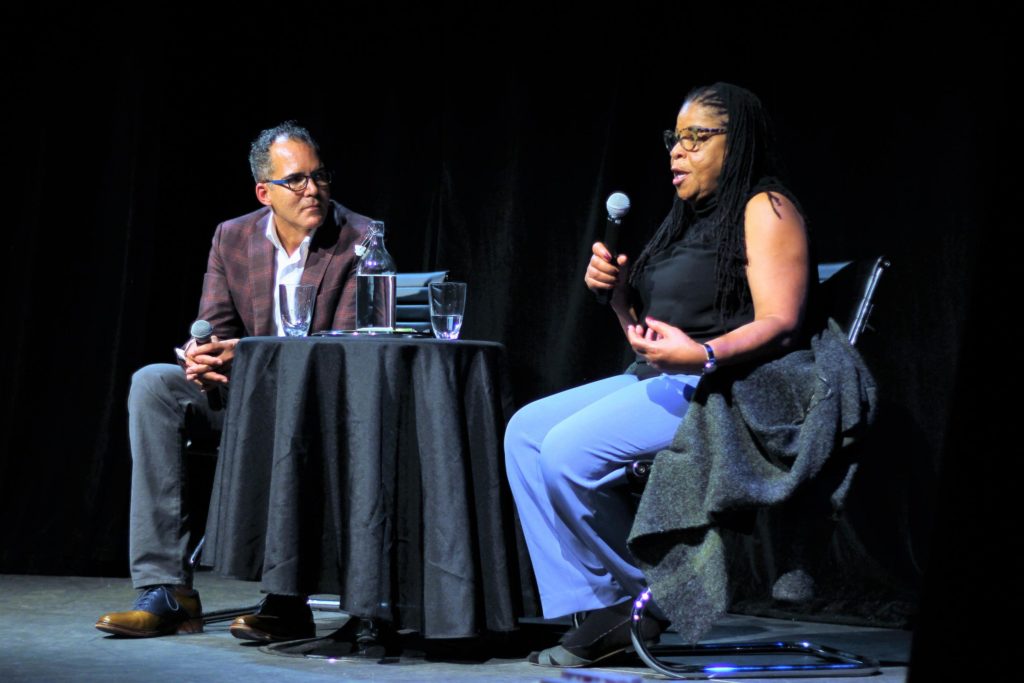
America’s prisons are overflowing, and the mass incarceration machine benefits neither prisoners nor society as a whole, argued Susan Burton in a recent appearance at the Bernie Wohl Center.
The nearly half-million Americans imprisoned on drug charges “aren’t broken,” the author and activist said; instead they’re using the few tools at their disposal to cope with serious challenges in their lives.
Burton speaks from experience. Her gripping memoir, Becoming Ms. Burton, details a lifetime of traumas — starting with childhood sexual abuse and moving on to teen pregnancy, prostitution and domestic violence. But what broke her, she writes, is when her five-year-old son was killed by a police officer in a hit-and-run accident. She turned to cocaine and kept using it despite repeated run-ins with the law.
“I’d lay it out before the judge: ÔMy son was killed, I’m trying to numb the pain with alcohol and drugs. I’d like to get some help,'” she writes. “But the gavel would come down with a smack, and the judge would say: ÔPrison.'”
Those increasingly lengthy sentences only added to her traumas, she said onstage. She described being stripped naked and searched “like an animal” and then “locked up in a dark place where if I stood on my tippy-toes I could get a slice of light.
“It’s torture,” she concluded.
Only after her brother agreed to pay for a private treatment program did Burton begin to heal. She went on to found a nonprofit organization, A New Way of Life, that helps formerly incarcerated women get services, find jobs and start new lives.
Burton’s memoir won the inaugural Goddard Riverside Stephan Russo Book Prize for Social Justice in 2017. She was joined onstage by James Forman Jr., whose book Locking Up Our Own: Crime and Punishment in Black America won the Pulitzer Prize the same year. He and Burton agreed that if criminal justice reform is going to happen, ordinary Americans must demand it.
“We cannot rely on politicians. It’s going to be about people,” said Forman.
The Book Prize, which is named for former Goddard Riverside executive director Stephan Russo, celebrates the power of the written word to create change in the name of justice for all. The shortlist for this year’s prize was released earlier this month and includes six titles on diverse topics ranging from sexual harassment to fracking to public housing. The winner will be announced at our Annual Gala on Oct. 30 at Manhattan’s Gotham Hall.